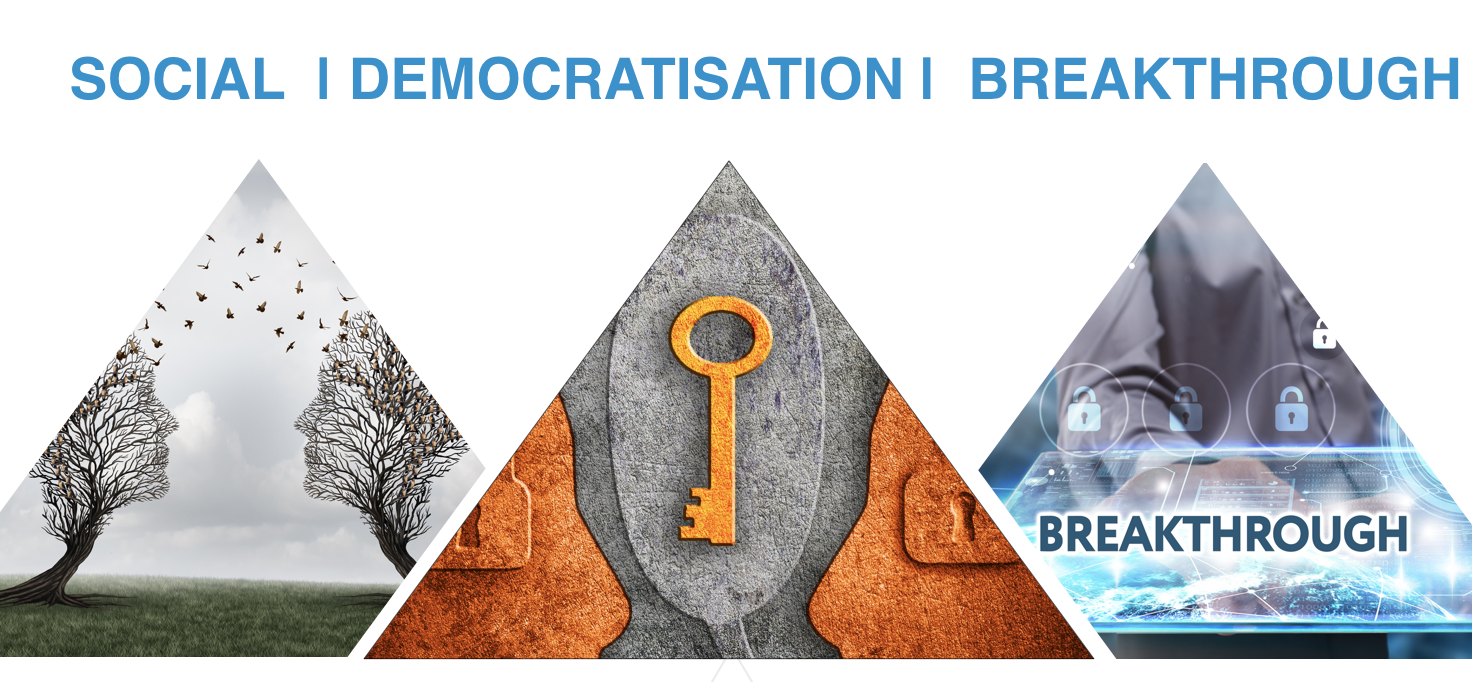Three shifts are re-orchestrating many of the important components of competitive advantage, they require every leader’s attention
SHIFT 1: THE POWER of SOCIAL
“Through this new technology, people are now empowered to express their grievances and to follow people they see as echoing their grievances,” says The New York Times. And, “if it wasn’t for social media, I don’t see Trump winning,” says Ian Bremmer, the president of the Eurasia Group.
Back in July 2016, by inputting data into the quest leadership framework, we predicted that Trump would win the US presidential election. Not because he is a good leader, but because he was convincing people that he was on a meaningful quest. We even wrote a letter to Hillary Clinton, imploring her to define her own quest. Unfortunately, her campaign continued to centre around “vote for me and keep him out of the White House.” This was neither a quest nor was it inspirational or meaningful. In reality, Trump’s shock win should not have been so shocking. Because of the power of social, one person can reach millions if not billions of people in real time. And, now it costs next to nothing.
This is unprecedented in human history. We are constantly learning the impact this seismic shift is having on competitiveness. “In the past,” Mr. Bremmer explained, “the concerns of Mr Trump’s supporters might have been ignored, and his candidacy would almost certainly have foundered.” Not this time.
Here’s the thing. People are inspired by leaders who want to make a difference.
Brexit, considered another “impossible” until the Leave campaign won, proved this point too. The best the Remain campaigners could muster was a fear-mongering monologue supported by ‘experts and facts’ about how bad it might be if the UK left the EU.
The Leave team said “let’s set sail into a stormy sea, for the promise of a better land.” They never had a plan of how to get to their promised land, but they didn’t need one because millions were inspired to vote for their dream.
Human history shows that you cannot frighten people into doing something long-term. But you can mobilise – now through the power of social and in real time – millions of strangers to collaborate and support a quest that promises to achieve the impossible and deliver meaningfulness.
Very few businesses get this, but the good ones do.
Of course deeper issues are at play here, it’s never just as simple as a quest. – the quest is the motivational platform or catalyst for driving change. But, here is what we can learn from Brexit and Trump’s success. If you are not on a quest during the 21st century to make the impossible possible, and to deliver meaningful benefits people will vote you irrelevant.
SHIFT 2: THE DEMOCRATISATION OF KNOWLEDGE
Wikipedia defines the democratisation of knowledge as “the acquisition and spread of knowledge amongst the common people, not just privileged elites.” This revolution began with Guttenberg’s printing press, and the Internet combined with mobile technology, internet of things and artificial intelligence is resulting in a revolution of exponential proportions.
Just a decade ago it cost thousands of dollars to buy books, go to university and learn the latest cutting edge insights. Today kids from New York to New Delhi can go to Coursera, Udemy, Khan Academy or any number of MOOCs. Here they gain instant access to the world’s best education from the world’s top universities and educators on nearly any subject imaginable, largely for free.
Our ability to gain access to and store knowledge is unprecedented. According the Oxford Martin School:
“Google now gives away, to each of its nearly one billion cloud users, online storage worth about $15,000 per person at 1995 prices. In other words, what would have cost a combined $15 trillion just twenty years ago is now free.”
This is a staggering development in an unimaginable short space of time. The implications for business are huge. The biggest challenge is that competition can now come from anywhere and from anyone with a big idea. This is further being augmented by the last big shift.
SHIFT 3: UNPRECEDENTED ACCESS TO DISRUPTIVE BREAKTHROUGH TECHNOLOGY
For just a few dollars you can purchase a smartphone that is faster than the combined computing power NASA had in the 1960s. In fact, the smartphone that fits neatly into your pocket today has more processing power than the two-half tons and $35 million Cray-2 supercomputer. Which was the world’s most powerful machine only twenty-five years ago, and it doesn’t stop there.
IBM predict that within the next ten years, today’s supercomputer like Watson will shrink to the size of a sugar cube. We are impressed with the computing power of today’s smartphones; imagine having the power of Watson in your pocket within the next decade.
The huge revolution taking place in front of us can be summed up like this:
Today the average person and organisation increasingly has the ability to capture massive amounts of information; process this data in real time and use the output to immediate and valuable effect.
This may not sound like a revolution but it is massive. It is driving the phenomenal advances in technology from 3d-printers to autonomous driving cars.
Combined, these three big shifts are empowering people from all corners of the world and providing them with the disruptive and creative capability to share, collaborate and access markets globally.
All they need now is hope, conviction and a big dream.
This is where the quest framework can deliver incredible results and be a force that shapes the future positively for you.
This post is an excerpt from our white-paper Achieve Remarkable Things which you can download here:



